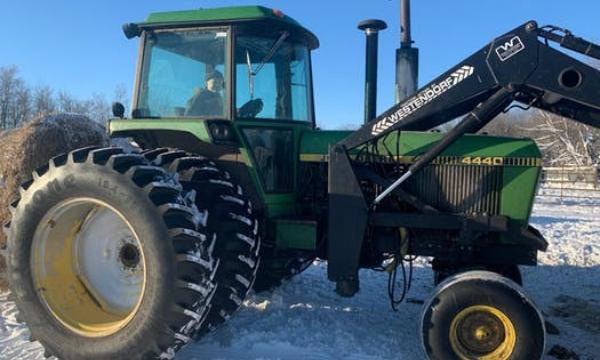Old tractors are the REAL modern ones
And this makes me very happy.

I just read that for tech-weary Midwest farmers 40-year-old tractors now a hot commodity. For me this is not a surprise at all. If anything, it’s bad that it did not happen earlier. Here is why.
The main reasons why these tractors are more interesting than modern ones are easy to explain:
- “These things, they’re basically bulletproof. You can put 15,000 hours on it and if something breaks you can just replace it”
- “They cost a fraction of the price, and then the operating costs are much less because they’re so much easier to fix”
What is absurd is the main reason why old tractors are “much easier to fix”. And that reason is why I am particularly happy to read that, at least in the USA, the demand for such tractors has accelerated.
Tractors built 30 or 40 years ago don’t just do anything that most farmers need, at much lower prices than new models with similar horsepower. Their main features is their lack of complex technology. Old tractors are much less expensive to repair because they do not run on software: “The newer machines, any time something breaks, you’ve got to have a computer to fix it”.
What’s worst, is that it has to be somebody else’s, and very expensive, computer: a “service truck from the dealership [charging] up to $150 per hour for labor”.
To know more about why I’m so happy that old tractors are back in vogue, and other ways to solve the same problem, read my post about automatic DIY farming.
Who writes this, why, and how to help
I am Marco Fioretti, tech writer and aspiring polymath doing human-digital research and popularization.
I do it because YOUR civil rights and the quality of YOUR life depend every year more on how software is used AROUND you.
To this end, I have already shared more than a million words on this blog, without any paywall or user tracking, and am sharing the next million through a newsletter, also without any paywall.
The more direct support I get, the more I can continue to inform for free parents, teachers, decision makers, and everybody else who should know more stuff like this. You can support me with paid subscriptions to my newsletter, donations via PayPal (mfioretti@nexaima.net) or LiberaPay, or in any of the other ways listed here.THANKS for your support!